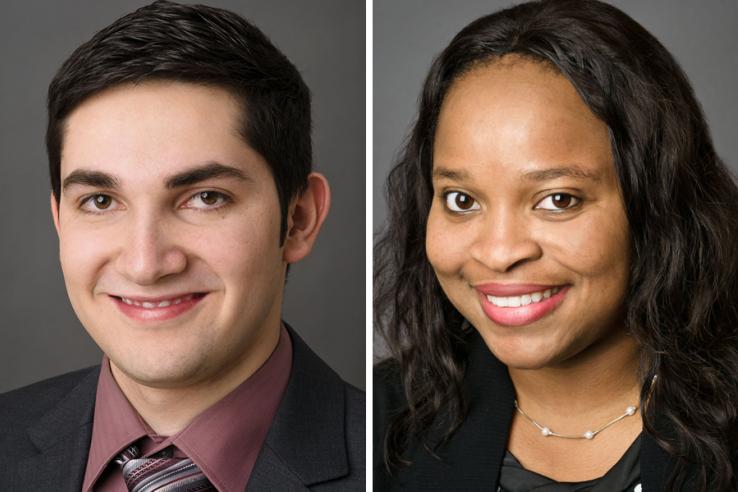Study finds physicians are effective messengers of Covid-19 information regardless of recipients’ race or political beliefs

A new large-scale randomized evaluation has found that messages delivered by physicians increased knowledge about Covid-19 and use of preventative health measures, like mask-wearing and social distancing, regardless of recipients’ race or political beliefs. This research shows that information campaigns delivered by trusted experts can be effective in changing people’s health-related beliefs and behaviors.
The study was led by an interdisciplinary team of researchers from MIT, Harvard, Ludwig Maximilian University of Munich, Paris School of Economics, Stanford, Yale, McLean Hospital, Massachusetts General Hospital (MGH), and the Covid-19 Messaging Working Group—a diverse group of physicians convened by the Center for Diversity and Inclusion at MGH to study and implement effective messaging to help disadvantaged communities protect themselves against Covid-19.*
The evaluation tested the effectiveness of three video messages about Covid-19, recorded by physicians of different ages, genders, and races. One message defined Covid-19 and discussed common symptoms associated with the virus and asymptomatic transmission. A second message reminded the viewer that Covid-19 was actively circulating in the United States. The final message described US Centers for Disease Control social distancing guidelines. The study included over 18,000 Black and white adults of modest incomes (the majority below $60,000) in the United States.
Study participants were randomly selected to view videos featuring the three Covid-19 messages, or three placebo videos on generic health topics. Participants selected to view the Covid-19 videos were then randomly assigned to view the messages delivered by either a Black or white physician. An additional component of the study sought to tailor the message to Black recipients by adding a fourth video featuring acknowledgements of structural racism and the unequal burden of Covid-19 on Black communities.
The positive impact of watching physicians deliver Covid-19 messages was remarkably similar across racial, socioeconomic, and political lines. Video messages delivered by both Black and white physicians reduced the knowledge gaps about Covid-19. Researchers measured knowledge gaps by asking participants questions about Covid-19 symptoms and prevention strategies and assigning a score from 0-10 based on the number of incorrect answers. The proportion of participants with no gap in knowledge (score 0) increased from 8.4 percent in the comparison group to 13 percent among participants who watched physician-delivered Covid-19 messages. Scores on an index of information-seeking behaviors increased by 5.6 percent relative to the comparison group, and scores on an index of self-reported Covid prevention behaviors increased by 3.2 percent. Willingness to pay for a mask increased as well. The video featuring discussion of structural racism and disparate racial effects of Covid-19 did not have an additional impact on Black recipients’ beliefs or behaviors.
These results suggest that people of all races and political affiliations can be influenced with accurate and clear information conveyed by trusted experts, such as physicians.
Professor Esther Duflo, the Abdul Latif Jameel Professor of Poverty Alleviation and Development Economics at MIT, co-founder and director of MIT’s Abdul Latif Jameel Poverty Action Lab, and a senior author of the study, noted, “In the United States, there is a perception that political polarization stands in the way of communicating objective health guidance. While such polarization has influenced behavior patterns related to social distancing and mask-wearing and state responses to the pandemic, our research suggests that physician information campaigns can change minds and behaviors regardless of political affiliation.”
The findings also underscore the important role a diverse workforce of physicians can play in delivering effective health information. In a moment when public health guidelines are constantly changing, strategies that encourage individuals to update and revise their beliefs based on accurate health information will be key to ensuring effective pandemic response.
* The study is authored by Carlos Torres, M.D., Harvard Medical School and Massachusetts General Hospital for Children, Department of Pediatrics; Lucy Ogbu-Nwobodo, M.D. M.S. M.A.S., Harvard Medical School, Massachusetts General Hospital, Department of Psychiatry, and McLean Hospital, Department of Psychiatry; Marcella Alsan, M.D. M.P.H. Ph.D., Harvard Kennedy School of Government; Fatima Cody Stanford, M.D. M.P.H M.P.A., Harvard Medical School and Massachusetts General Hospital, Department of Medicine and Department of Pediatrics; Abhijit Banerjee, Ph.D, Massachusetts Institute of Technology; Emily Breza, Ph.D., Harvard University; Arun G. Chandrasekhar, Ph.D., Stanford University; Sarah Eichmeyer, Ph.D., Ludwig Maximilian University of Munich; Mohit Karnani, M.Sc., Massachusetts Institute of Technology; Tristan Loisel, M.Sc., Paris School of Economics; Paul Goldsmith-Pinkham, Ph.D.,Yale University; Benjamin A. Olken, Ph.D., Massachusetts Institute of Technology; Pierre-Luc Vautrey, M.Sc., Massachusetts Institute of Technology; Erica Warner, Sc.D. M.P.H., Harvard Medical School, Massachusetts General Hospital, Clinical Translational Epidemiology Unit; and Esther Duflo, Ph.D., Massachusetts Institute of Technology; for the COVID-19 Working Group.